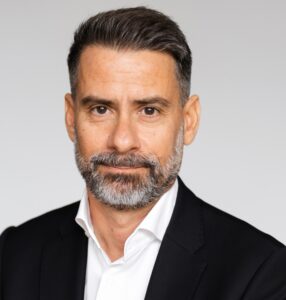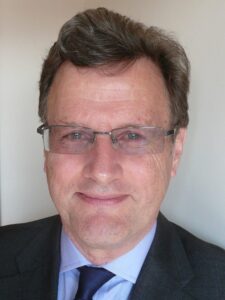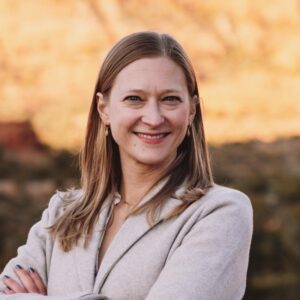Members
Members
Name Affiliation
1. Dimitrios Kalogeropoulos Chair, Global Health Digital Innovation Foundation
2. Kristina Celentano Vice Chair, Koralaide consulting
3. Paul Barach School of Medicine, Thomas Jefferson University
4. Maryam Lustberg Yale Medical School
5. Maeghan Orton University of Edinburgh
6. Peter Drury Drury Consulting
7. Gabby Samuel King’s College London
8. Peter Benjamin HealthEnabled
9. Raman Muthusamy School of Public Health Sciences and Technology, Malla Reddy Vishwavidyapeeth
10. Abhinavdutt (Abhinav) Singh iRhythm Technologies Inc
11. Imran Arain Syntasa
12. Antony Louis Piriyakumar Douglas Cambridge Institute of Technology
13. Shankar Sridharan NHS
14. Srikanth Mahankali Shree Advisory & Consulting
15. Josué Kossi SROUGBO Digital Medical Hub
16. Hesham Gaafar WHO
17. Heidi Good PATH
18. Bilal Mateen PATH
19. Dimitri Varsamis Global Health Digital Innovation Foundation
20. Srinivas Murri Meta
21. Santanu Sinha Broadcom Inc.
22. Steven Wanyee IntelliSOFT consulting limited
23. Terry Mochire IntelliSOFT consulting limited
24. Faith Mahinda FHI Clinical Inc.
25. Andrei Dusmikeev Breathe Safety Index
26. Sandeep Reddy Queensland University of Technology, Centre for Advancement of Translational AI in Medicine
27. James T Lin Isli Consulting
28. Lynn Brielmaier None
29. Adam Chee National University of Singapore
30. Ivo Petrov Shemha Health
31. Maryam Sherif None
32. Juan José Martí Noguera Digital Mental Health Consortium
33. Rudolf Wagner ADHOCON
34. Ramy Azzam Self-employed
35. Maria Liakata Queen Mary University of London,
36. James Teo NHS
37. Sonali Daniel SCOPE Impact
38. Paul Campbell HealthAI
39. Fatma AbdelSalam Serenity Strategic Partners
40. Jana Alagarajah NHS/Wellcome Trust
41. Oscar Franco Karolinska Institute
42. Ali Humayun Zafar Ministry of Public Health, Qatar
43. Vishwasrao Salunkhe Wolters Kluwer Health
44. Sulekha Chattopadhyay California Environmental Protection Agency
45. Martin Le Jeune Global Health Digital Innovation Foundation
46. Satwik Reddy Jambula Uber
47. Riccardo Vecellio Segate University of Groningen
48. Sana Zia Hassan Ernst and young LLP
49. Linbi Hong Columbia University
50. Tammy Mah-Fraser Alberta Innovates
51. Attrayee Chakraborty Analog Devices
52. Ben Fisher Mobcoder
53. Holly Coole MHRA
54. Porkumaran Karantharaj
Sri Krishna College of Engineering and Technology
55. Yuanshuai Luo China Mobile Communications Group Co., Ltd
56. Hassan Naqvi Aga Khan University Hospital
57. Soumya Thomas Anthem Inc.
58. Md. Aminul Islam Bangladesh University of Health Sciences (BUHS)
59. Gulmira Asmaganbetova None
60. Richard Holman Matanta Universitas Hasanuddin
61. Shazia Hassan Deloitte
62. Sreekanth Narayan LTIMIndtree Ltd
63. Siddharth Nandagopal None
64. Rebecca Mieloszyk Upwelling Technologies
65. Oleksii Tumanov Oracle







